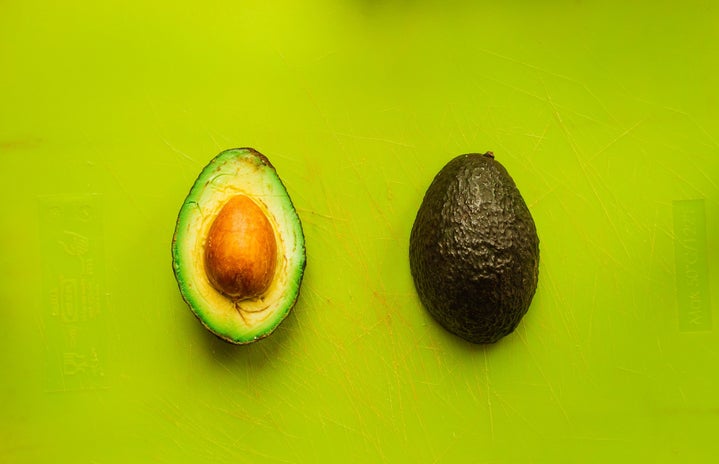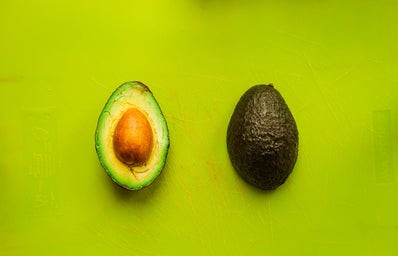In recent years, veganism has been sensationalized online as “the new millennial diet”. This shift in food consumerism has been met with significant criticism, both from hardcore omnivores (oh they exist alright, I saw a man at Disneyland with a shirt that read “A steak a day keeps the vegans away”) and from skeptics of a single diet being deemed a universal panacea for carbon emissions. But, whatever your views of vegan culture may be, it is undeniable that there is an issue with our current food habits. Something as rudimentary as feeding ourselves should not be one of the biggest contributors to climate change but unfortunately, it is. Which means something needs to be done differently. In case you’ve forgotten why veganism has taken the world by storm, it’s because the meat industry is problematic, and more people know it now. Cow and sheep eructate and excrement makes up 15% of today’s greenhouse gases. According to Nature Climate Change, unless the industry changes, it will be the number one cause of climate change by 2050. And if that’s not reason enough, the meat industry is becoming notorious for serving as a virus breeding ground. I don’t know about you, but I definitely don’t want another pandemic!
“Okay, so now what? If I switch from steak to avocado toast, I’ll save the world?”. WRONG. Here’s the thing about veganism-it will only help, if you do it right. If it’s sustainable. What that means, is that the produce you consume has to have less of a carbon or water footprint than the animal product you would have consumed. There are many fruits and veg that don’t fall into this category. As a rule of thumb, it’s generally the ones that are seasonal, but that you eat year-round anyway. And the ones that can’t even grow where you live, but that somehow make it onto your plate. For example, delicate fruits such as blueberries and strawberries are imported into the UK and US by air, in order to meet the enormous year-round demand for them. The University of Manchester found through a study that asparagus has the highest carbon footprint of any vegetable consumed in the UK, with 1 kg of asparagus producing 5.3 kg of CO2 . Again, this is due to most of the UK’s asparagus being imported from Peru by air. And now we come to avocados, the poster child for vegan diets. Instagram’s favorite breakfast. But the environment’s worst enemy. One, single, avocado requires 320 litres of water to grow. But the glorification of this fruit has made it a profitable one to grow, and so each year, more land is deforested and more water is spent on sustaining our need for a ‘grammable snack.
This poses an entirely new concern; how do we know which foods are not damaging to the environment, and how do we stay healthy with diminished variety? The answer is to focus more on production rather than on the product. What I mean to say is, veganism isn’t the only answer. Finland, for example, regulates fishing practices that prevents overcrowding in lakes, making the consumption of fish environmentally sustainable. In regions of the arctic, where eating fruits and vegetables would require importing, seal meat is both healthy and sustainable. In case you haven’t spotted the pattern, it’s local! Local, seasonal, and small scale is the name of the game. Eating locally and seasonally sourced food, whether it’s vegan or not, is the best way to eat sustainably. And it allows for a diet with a good diversity of plant and animal-based foods. But if you wanted to maintain a strictly vegan diet, you’d have to take the extra step to find local makers of alternatives. For most people, it would come down to choosing between grocery store almond milk and locally sourced cow milk. If your reason for going vegan was because you thought it was the only way to eat sustainably, then cow milk’s the way to go. Most almond milk is dependent on almonds imported from California! To fulfill nutritional requirements and be sustainably vegan would take a great deal of discipline, but if you have the willpower (and the budget!), then you’d be a true hero.
So far, I’ve only addressed veganism that can be environmentally sustainable. But what about in terms sustaining agriculture and its farmers? Big Food is encroaching on the agricultural industry, and that has thus far led to underpaid farmers, most of whom are exploited and harassed minorities. Veganism is ethical for animals, but we have to make sure it’s ethical for the farmers as well. Countries need to invoke policies that create a safe and rewarding system for those who work in agriculture. But while we continue to consume and governments continue to make no change, remember that the Mexican avocado tempting you in the store isle was taken from Michoacán farmers by armed cartel members. And that the cheap coffee sourced from Kenya was harvested by children illegally forced into bonded labor.
There is yet another aspect about veganism that we must consider, and it’s a cultural one. I’m Indian, so 90% of my diet growing up was accidentally vegan. I was eating vegan before it became all the rage. And this is true in many other countries as well, Israel and Taiwan following India in vegetarianism. But the thing is, my food was never considered glamorous or trendy. In fact, as I grew up in America, I would feel ashamed of my fragrant lunches while everyone else brought cutely packed sandwiches. While I know better today, there’s an entire generation of children growing up with a Eurocentric idea of veganism. And everyone choosing to adopt that version of the diet will be counter-productive. This argument shouldn’t sound like a stretch; like criticism for the sake of criticism. Because it’s not. Food and culture are a universally, mutually linked combination. To create a diet that features produce found only in developed countries and then sell it to the whole world would not solve any of the issues veganism is supposed to solve. China’s import of avocadoes skyrocketed around the same time that Instagram became saturated with avo-toast pictures. We need to realize that with such diversity in culture, nutritional requirement, and agricultural limitations, a diet cannot be globally homogenized. It is truly detrimental to everyone. Sustainable veganism now is not only about the ingredients used, but about the end result. My sustainable veganism here in India looks a lot different from yours, and that’s okay.
The most important thing when it comes to switching from veganism to sustainable veganism is erasing the narrative that social media has written. Delete the images of the exotic fruit platters and fancy lab-grown meats. Appreciate that making a change for the better won’t always look the part. And remember, only do what you can within the limitations of your health and your budget. Remove the pressure of being the perfect vegan. As long as you eat local, seasonal and ethical, you’re doing more than you can possibly imagine.



